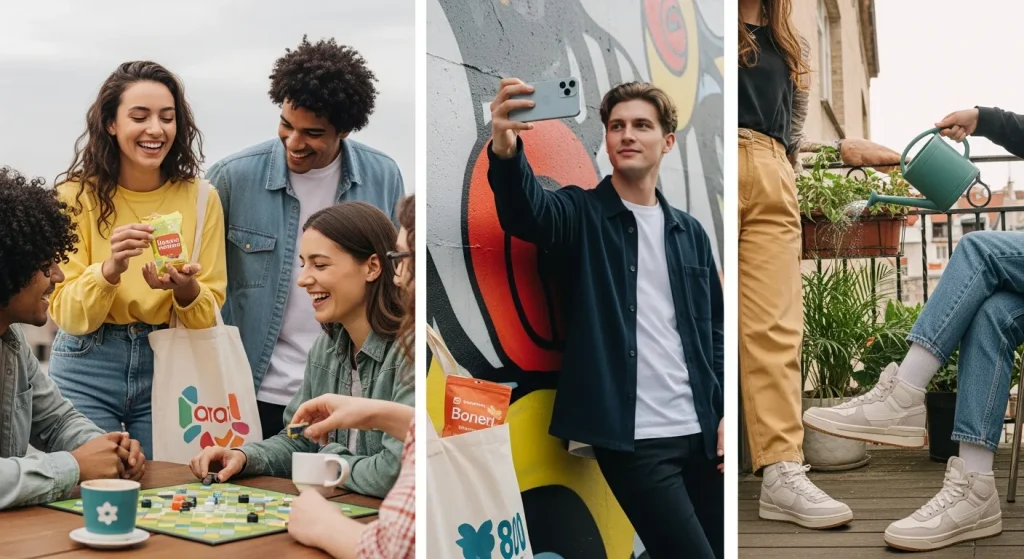Authentic Influencer Marketing: Balancing Trust and Brand Partnerships

The greatest paradoxes of Authentic influencer marketing point us at its essential contradiction. Influencers are respected for presenting an un-calculated, down to earth image; they succeed because they are truly trusted by their followers. Yet the act of sponsoring content may be read as posing a question mark. Ultimately, how can influencers balance their own authenticity with the requirements of supporting brand messages? How can brands team up with content producers to deliver campaigns that perfectly match their viewers?
Why Authenticity Matters in Authentic Influencer Marketing
 In 2023, Authentic influencer marketing grew into a 21 billion dollars business. Why? Because consumers are more likely to believe a product recommendation from someone they trust, who they follow and admire, than traditional adverbs. When it comes to product recommendations, Edelman’s Trust Barometer 2023 report found that 63% of those questioned trusted influencers over business.
In 2023, Authentic influencer marketing grew into a 21 billion dollars business. Why? Because consumers are more likely to believe a product recommendation from someone they trust, who they follow and admire, than traditional adverbs. When it comes to product recommendations, Edelman’s Trust Barometer 2023 report found that 63% of those questioned trusted influencers over business.
Yet trust is not something that can be taken for granted. It has to be built up and maintained over time. The key is to stay consistent with your content so that it genuinely reflects who you are and what you stand for. If an audience feels an influencer’s content is not authentic, forced or unrelated that hard-won trust can be gone in an instant. Also important is a brand’s faux linkage with influencers, as this would be harmful to its own prestige and alienate potential consumers.
Authenticity builds trust
Authentic Influencers thrive not because of their follower counts but because of the connection they foster with their audience. Trust, which is nurtured through honest storytelling and shared values, is the currency of social influence.
Distrust sabotages campaigns
When influencers fail to transparently disclose partnerships or promote products disconnected from their familiar identity, audiences feel deceived. Research shows that 42% of consumers unfollow influencers when they promote irrelevant goods or content. That’s why balancing authenticity with sponsored content is essential.
It fosters both brand loyalty and ROI
When an influencer aligns with content that resonates deeply and authentically, sponsored posts perform better. This doesn’t just help brands achieve their campaign goals; it also strengthens the audience’s bond with the influencer.
Key Challenges to Authentic Content Creation in Authentic Influencer Marketing
Influencers and marketers alike face several challenges when it comes to keeping the “realness” in sponsored collaborations. Recognizing these issues is the first step toward overcoming them.
Misaligned partnerships
A mismatch between a brand’s values and an influencer’s voice can feel jarring to an audience. For instance, imagine a minimalist, eco-conscious influencer partnering with a fast-fashion brand known for its high-volume production. The disconnect is obvious.
Overly scripted campaigns
Audiences follow influencers for their unique perspectives, not to hear them repeat corporate marketing language. Overly rigid campaigns can strip away the personality that makes an influencer’s content so engaging in the first place.
Pressure to monetize
Many influencers face the challenge of balancing authentic creation with the need for income. When financial incentives take precedence over authenticity, cracks in the content can appear, making audiences question the influencer’s integrity.
How to Create Authentic Influencer Partnerships
 Maintaining authenticity in Authentic influencer marketing doesn’t have to be an uphill battle. By taking deliberate steps, both influencers and brands can nurture trust while delivering impactful campaigns.
Maintaining authenticity in Authentic influencer marketing doesn’t have to be an uphill battle. By taking deliberate steps, both influencers and brands can nurture trust while delivering impactful campaigns.
1. Choose influencers strategically
Rather than focusing solely on follower count, prioritize influencers who share your brand’s values, ethos, and aesthetics. Micro or niche influencers often bring higher engagement rates than mega influencers thanks to their highly targeted audiences.
For example, if your brand sells environmentally friendly skincare products, look for influencers who already advocate sustainable living. Their audience will be more receptive to your messaging.
2. Prioritize creative freedom
Collaboration doesn’t mean control. If influencers are permitted to develop content in their own voice, they frequently generate more authentic and involved posts.
Rather than laying down every word, present campaign objectives at a higher level and let influencers create in their signature style.
Encourage the influencer in a timely fashion: “What works best with your audience?” or “How do we make this match genuine concern for your followers?”
3. Focus on storytelling over selling
Compelling sponsored content feels like a shared story, not an outright pitch. Encourage influencers to weave your product seamlessly into their lives by sharing their personal experiences.
For instance, instead of “I love Brand X’s new snack bars. Try them today!” an influencer might post, “Brand X’s snack bars were my savior during last week’s late-night editing session. A guilt-free snack that actually fuels productivity? Count me in!”
4. Provide transparency with sponsorships
Transparency isn’t optional; it’s essential. Always disclose partnerships clearly using hashtags like #ad or #sponsored. Not only does this foster trust, but many platforms, including Instagram and YouTube, have strict guidelines around sponsorship disclosures.
When done right, audiences perceive transparency as a sign of respect, making them more likely to trust the endorsement.
5. Invest in meaningful partnerships
One-off sponsorships can sometimes lack depth. Instead, focus on building long-term relationships with influencers who love your brand. This builds credibility with their audience over time, as the collaboration feels less transactional and more genuine.
Long-term partnerships also allow influencers to explore multiple ways of integrating your product into their content. For example, a fitness influencer could showcase your activewear in gym workouts, podcasts on wellness, and casual outdoor treks over several months.
Real-World Examples of Authentic Influencer/Brand Collaborations
- Daniel Wellington and Micro-Influencers
Rather than chasing massive celebrities, Daniel Wellington built its brand by tapping into micro-influencers on Instagram. These partnerships feel authentic because they feature real people showcasing watches in everyday settings.
- Fenty Beauty and Inclusive Influencers
Rather than relying on traditional beauty influencers, Fenty Beauty collaborated with creators across diverse cultural, gender, and body type spectrums. As a result, audiences felt the brand was celebrating everyone, not just adhering to the typical beauty standards.
Steps Businesses Can Take to Vet Influencers for Authentic Partnerships
If you’re a marketer, vetting influencers for genuine partnerships is crucial:
- Engagement over followers: Don’t be deceived by large followings. Evaluate their engagement rates, comments, and consistent interaction with their fans.
- Audience alignment: Analyze their audience demographics. Are they in line with your target market?
- Content quality and tone: Review past posts to ensure they authentically match your brand’s tone and offer genuine value.
- Track record with other brands: How have their past partnerships performed? Authentic influencers often generate consistent positive feedback across campaigns.
Transparency as a Trust Multiplier
Clear sponsorship disclosures strengthen credibility rather than weaken it. When influencers openly label content as #ad or #sponsored, audiences appreciate honesty. Transparency demonstrates respect and ethical responsibility. Hidden partnerships, on the other hand, can damage reputation and erode trust instantly. Regulatory guidelines also require clear disclosure in many regions, making transparency legally essential. Authentic campaigns balance promotional messaging with genuine experience sharing. When influencers confidently stand behind a product and communicate openly, sponsored content feels collaborative rather than deceptive. Transparency ultimately reinforces long-term trust.
Creative Freedom Encourages Authenticity
Overly scripted campaigns often strip away an influencer’s personality. Audiences follow creators for their unique voice, humor, and storytelling style. Allowing influencers creative control ensures content remains natural and engaging. Brands should provide clear objectives but avoid rigid scripts. When creators adapt brand messages to fit their tone, authenticity increases. Creative freedom also encourages innovation, producing diverse content formats such as tutorials, behind-the-scenes clips, or lifestyle integrations. This flexibility fosters deeper engagement while preserving the influencer’s identity.
Measuring Authentic Engagement
Authenticity can be evaluated through engagement quality rather than vanity metrics. Meaningful comments, discussion threads, and audience questions indicate genuine interest. Sentiment analysis helps determine whether followers respond positively to sponsored collaborations. Brands should monitor metrics such as saves, shares, and repeat interactions to assess trust levels. High follower counts without engagement may signal superficial influence. Data-driven insights allow marketers to identify which influencers truly connect with their communities. Measuring authentic engagement ensures campaigns deliver long-term value rather than short-lived impressions.
Storytelling as a Trust-Building Tool
Storytelling transforms sponsored posts into relatable narratives. Instead of direct product pitches, influencers can share real-life scenarios where the product adds value. Personal anecdotes humanize campaigns and create emotional resonance. Audiences are more likely to trust stories than advertisements. Brands should encourage influencers to share challenges, routines, or experiences that integrate products organically. Authentic storytelling strengthens brand memorability and emotional loyalty. Over time, stories create consistent brand associations rooted in genuine experience.
NFT Marketing and Digital Authenticity
NFT marketing introduces innovative ways to reinforce authenticity and community trust. Influencers can collaborate with brands to launch limited-edition NFTs offering exclusive benefits such as VIP access, digital collectibles, or loyalty rewards. When NFTs provide real utility rather than speculation, they enhance engagement. Influencers play a crucial role in educating audiences about NFT value and transparency. By combining blockchain verification with influencer credibility, brands create secure and exclusive digital experiences. NFT campaigns aligned with authentic storytelling foster innovative communities built on digital ownership and shared value.
Avoiding Over-Commercialization
Excessive sponsored content can dilute credibility. Influencers who promote too many unrelated brands risk audience fatigue. Maintaining a balanced content mix between organic and sponsored posts preserves authenticity. Brands should respect audience trust by limiting frequency and ensuring relevance. Sustainable authentic influencer marketing focuses on quality partnerships rather than quantity. Avoiding over-commercialization protects long-term reputation and maintains community engagement.
Crisis Management Through Authentic Communication
When controversies arise, authentic communication is critical. Influencers who address issues transparently maintain credibility. Brands should collaborate closely with influencers during challenging periods to ensure consistent messaging. Honest dialogue prevents misinformation and reinforces trust. Communities appreciate accountability and responsibility. Authentic crisis management can even strengthen relationships when handled effectively.
The Future of Authentic Influencer Marketing Is Rooted in Authenticity
 The evolution of authentic influencer marketing is moving toward a space where authenticity isn’t just encouraged; it’s necessary. Both influencers and brands must approach partnerships as co-authors of genuine narratives rather than transactional relationships.
The evolution of authentic influencer marketing is moving toward a space where authenticity isn’t just encouraged; it’s necessary. Both influencers and brands must approach partnerships as co-authors of genuine narratives rather than transactional relationships.
By prioritizing matched values, storytelling, and transparency, creator-driven campaigns won’t just deliver short-term ROI. They’ll build trust, loyalty, and meaningful connections that cement a brand’s longevity in the market.
Whether you’re a brand ready to elevate your influencer strategy or a content creator seeking to refine your sponsored content, authenticity is the compass that points to success.
Conclusion
Authenticity is the foundation of sustainable authentic influencer marketing. In an industry driven by trust, both influencers and brands must prioritize transparency, value alignment, and meaningful storytelling. Genuine partnerships outperform scripted promotions because they nurture emotional connections. As technologies like NFTs and blockchain enhance digital engagement, authenticity will remain the core differentiator. Brands that respect their audience’s intelligence and prioritize honest collaboration will build stronger loyalty, higher ROI, and long-term market credibility. Ultimately, authenticity is not just a strategy—it is the future of authentic influencer marketing success.





